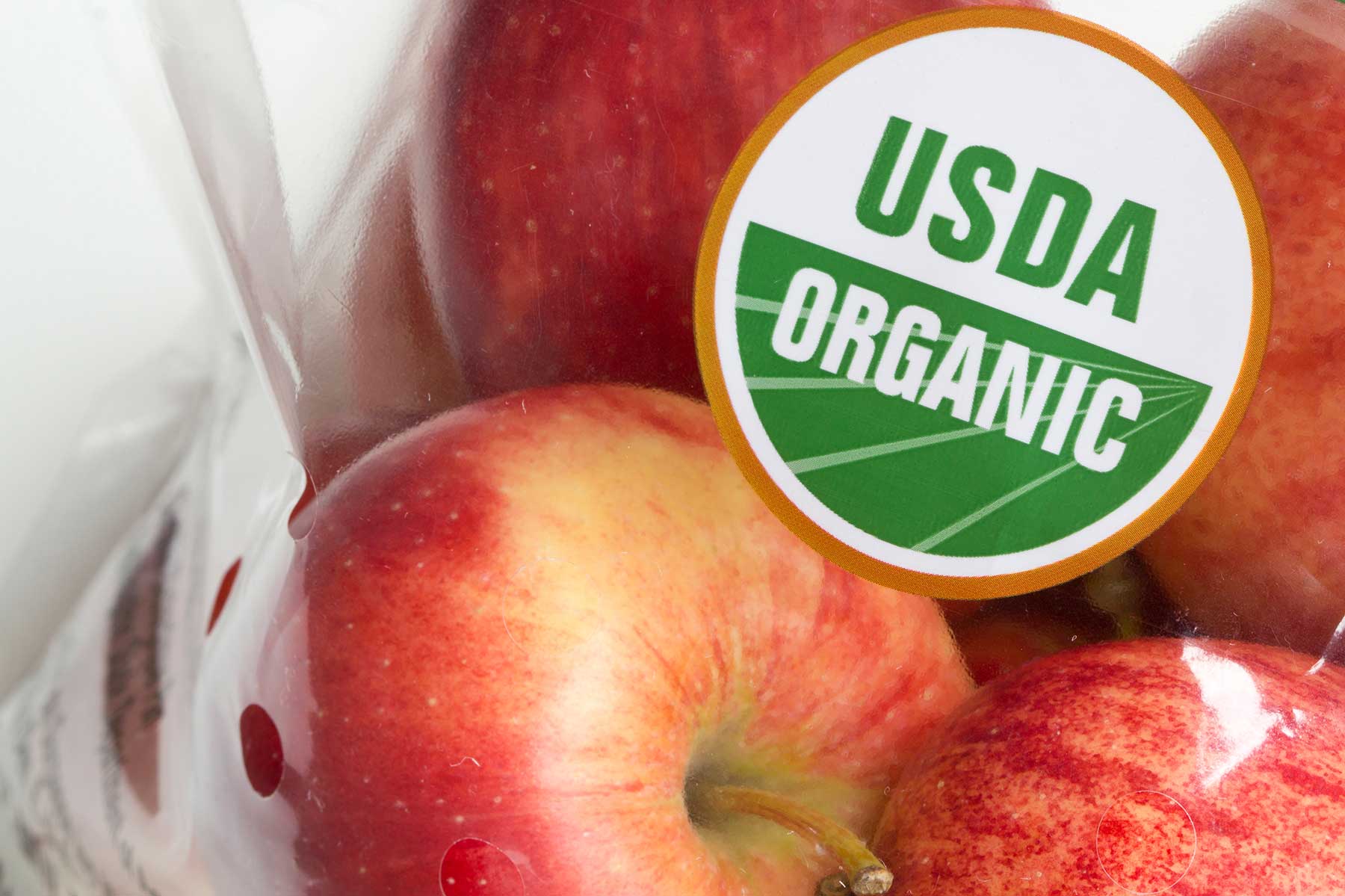With a growing organic sector in the fresh produce industry and increasing participation throughout the supply chain, IFPA aims to be at the forefront of organic policy issues that our members face. Recently, there have been policies and regulations that affect our industry, thus IFPA has created the Organics Committee as a resource for our industry.
With representation across the fresh fruit and vegetable supply chain, the Organics Committee brings a valuable perspective and level of expertise. The IFPA Government Relations team, with input from the Organics Committee, regularly meets and communicates with the Administration, Members of Congress and other stakeholders with regards to organic policy.
Organic Produce Quick Facts
![]()
In the past 12 months, organic department produce dollar sales are up .03% and volume sales are up 3%. Price per volume rose 4.6%
![]()
Between 2011 and 2021, certified organic cropland acres increased by 79%
![]()
In 2021, retail sales of organic fresh fruit and vegetables were estimated to be $19.2 billion, being the top category of organically grown foods
![]()
In 2023, the percentage of organic versus conventional sold at retail was 9.3%, showing growing demand.
2023-2024 Action Plan
IFPA will work the Biden Administration and Congress to develop sensible polices within current and future organics regulation. This includes engagement with the USDA National Organic Program (NOP), the National Organic Standards Board (NOSB) and all new regulatory requirements or policy decisions.
Some of the policies that the produce industry is most affected by include:
![]()
NOP Strengthening Organic Enforcement (SOE) IFPA FAQ Sheet
NOP published the SOE final rule in January 2023 to strengthen the oversight and enforcement of the production, handling, and sale of organic products. The new rule will impact many sectors of the organic fresh produce supply chain and has an enforcement date set for March 19, 2024. The guidance document provided will help answer some clarifying points to help ensure your operation is in compliance by the enforcement date.
![]()
A Farm Bill for Organics
The new Farm Bill holds significant importance for organic stakeholders and farmers due to its direct impact on agricultural policies and programs. This comprehensive legislation, periodically renewed by Congress, encompasses various provisions that influence all production, including organic production. IFPA is committed to leading on organic priorities in the Farm Bill. We are doing this through two key marker bills we have endorsed:
- Continuous Improvement and Accountability in Organic Standard Act (CIAO) - The bill would improve the National Organic Program by establishing a process by which USDA solicits input every five years from organic stakeholders regarding what (if any) organic standards need updating, and following consultation with the NOSB, publishes a list of priorities for regulatory action.
- Strengthening Organic Agriculture Research Act (SOAR) of 2023 - Every dollar invested in agriculture research brings $20 to our economy, which also applies to organic production. This bill would bolster the funding and resources for organic research programs at USDA, including the Organic Research and Extension Initiative and the Organic Production and Market Initiative.
![]()
NOP and NOSB Priorities, Work Agendas and Sunset Reviews
Active engagement with the USDA National Organic Standards Board is critical in ensuring the continued success and growth of the organic fresh produce industry, particularly during the annual sunset review process for agricultural inputs allowed in organic production. The listing of inputs undergoing sunset review in 2024 and additional priority work items are listed below:
- IFPA Spring 2024 NOSB Agenda Comments
- NOSB Active and Ongoing Work Items (see pages 3-26 for items covered in 2024 meetings)
- NOP Work Agenda Request: Biodegradable Biobased Mulch Firm
- NOP Work Agenda Request: Compost Production for Organic Agriculture
Organic Policy Resources:
- NOP IFPA Comments on Production Standards for Organic Mushrooms
- NOP Strengthening Organic Enforcement (SOE) USDA Resource Page
- National Organic Standards Board (NOSB)
- NOSB Current Members
- National Organic Program
- The Organic Insider
Important Upcoming Dates
- October 17-19, 2024 | IFPA The Global Produce & Floral Show | Atlanta, GA
- December 4-5, 2024 | OPN Organic Grower Summit | Monterey, CA
To learn more about Organic Policy, please contact:
- Sara L.Neagu-Reed, Director, Production & Environmental Policy
